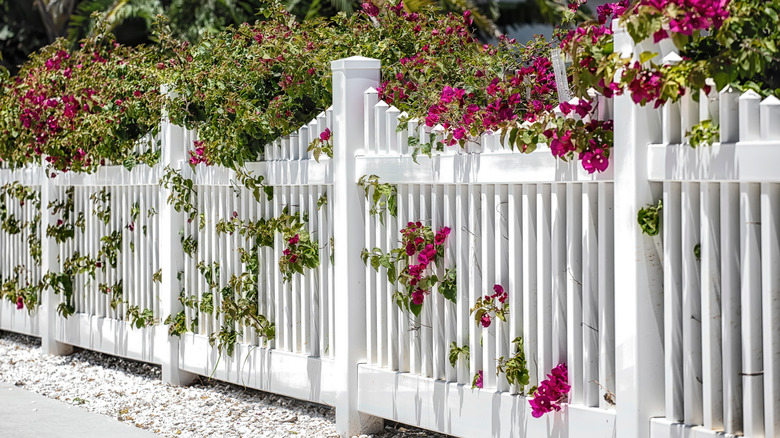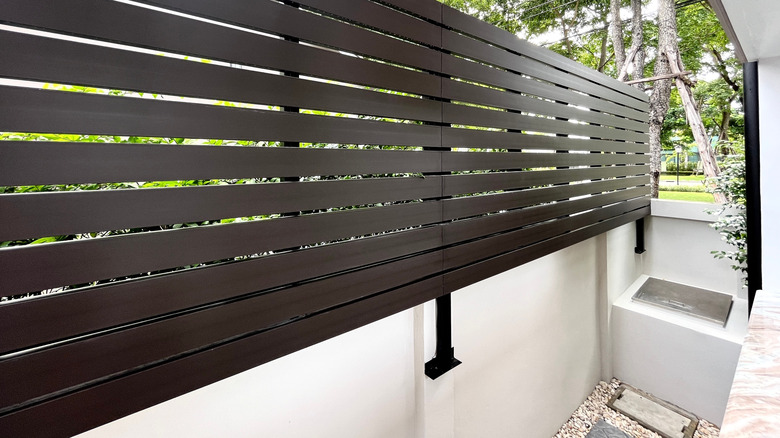Can Your Vinyl Fence Warp In The Hot Summer Weather? Here's What We Know
It should be no surprise that vinyl fencing is a popular choice. It's available in a huge range of styles, it's easy to look after, and because of its high durability, it's usually great value for the money. In fact, vinyl is one of the top picks among the types of fencing that instantly boost your curb appeal. However, because vinyl (properly called polyvinyl chloride or PVC) is a type of plastic, some people worry that their fence could warp in hot summer weather.
We're happy to be able to put their minds at rest on that score. While a vinyl fence might contract in cold weather and expand when it's hot, it's typically not enough to cause damage. So, if you've been wondering whether a vinyl or wood fence is for you, the weather resistance and low maintenance of vinyl are strong arguments in its favor. The color might change a little after many seasons of exposure, but it offers tremendous structural integrity and should last 20 years or more, regardless of wind, rain, or those long, scorching hot summers.
Why investing in quality vinyl fencing is important to prevent heat problems
All of this promise is reliant on one thing: the quality of the vinyl fencing you choose. As you might expect, not all vinyl fencing is the same, and there are some important things to look for. For example, dark, and particularly black, vinyl fencing will absorb more heat than lighter colors, so the impact of full sun could be more damaging.
Under these circumstances, cheap vinyl fencing might warp, but quality products have aluminum inserts or other forms of reinforcement added to prevent problems. Additionally, professional installers will allow expansion spaces so the fence panels don't distort if they move a little. Many panels have titanium oxide added during manufacture to help protect them from harmful UV rays. It may not directly impact warping, but it does prevent yellowing, fading, and a tendency to eventually become brittle. A "lifetime" warranty can be very reassuring, but it's important to check the details. The product may be covered, but not the cost of removal and reinstallation.
You can also be proactive by using natural planting in front of your vinyl fence to break up areas that are impacted by direct sunlight. This may also be more visually appealing than a continuous plastic barrier. During extreme heat, you can spray the vinyl surfaces with cold water. Not only will it reduce the temperature and minimize the risk of warping, but it can also remove debris to keep the fence in good condition.

